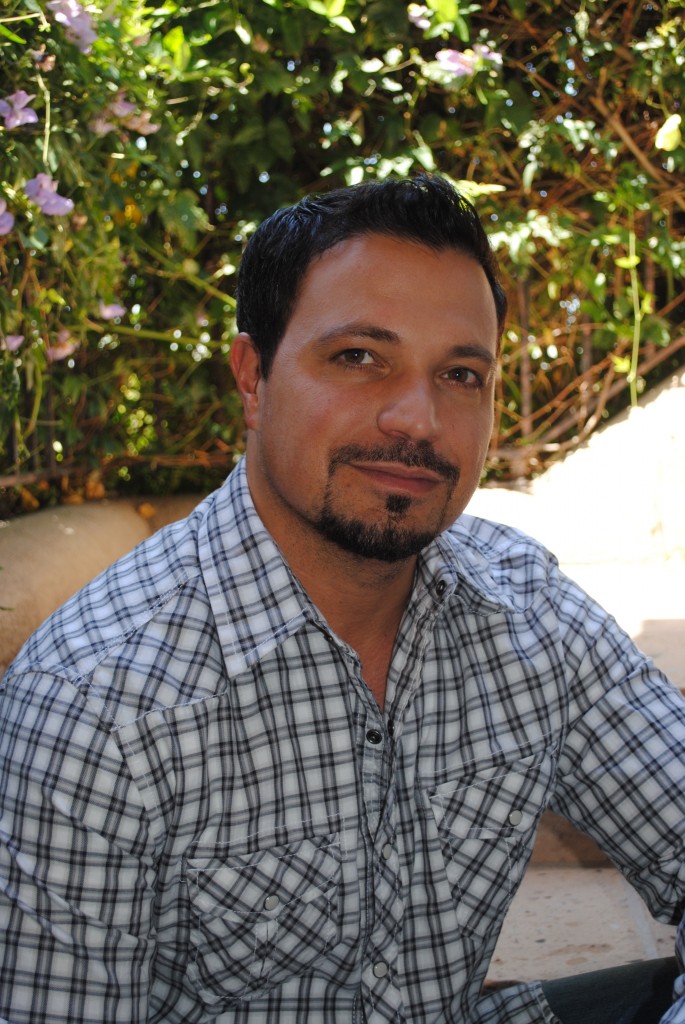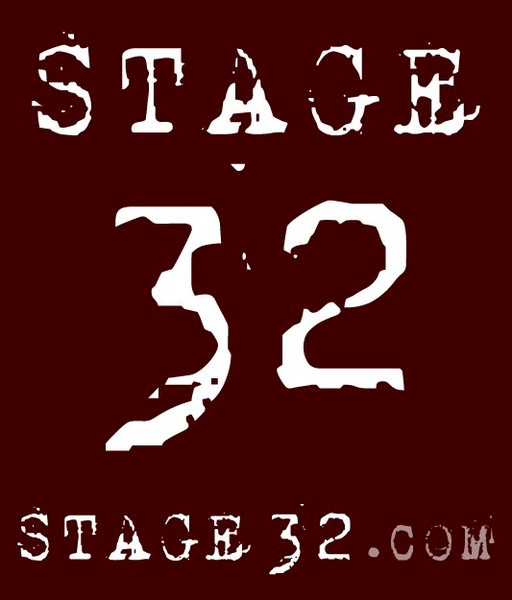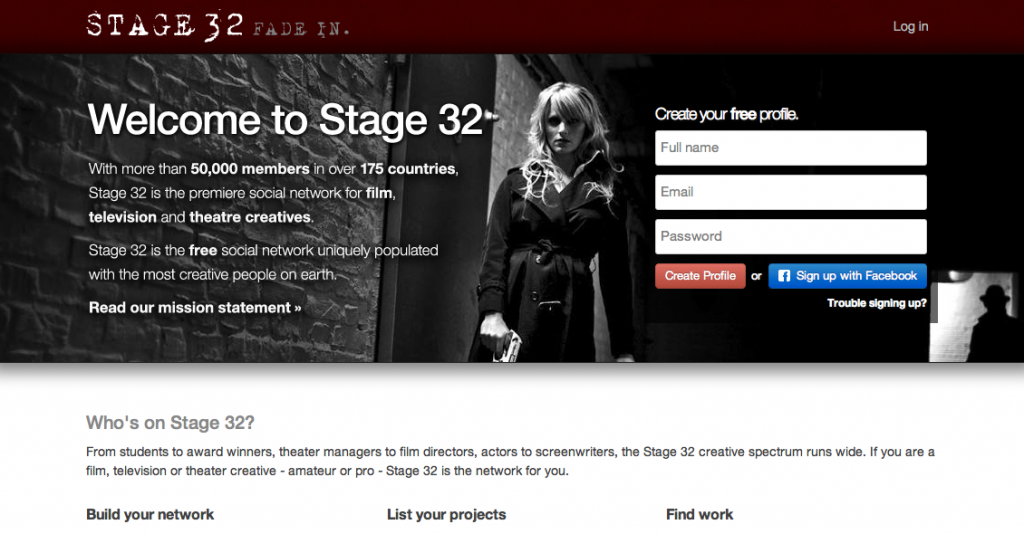 MEET RICHARD BOTTO: Richard Botto is an entrepreneur who has a rare and powerful combination of entertainment and business passion and experience. Botto is the co-founder and CEO of Stage 32 (www.stage32.com) and Fair Warning Productions. He is also a screenwriter and served as an associate producer on Sam Levinson’s Sundance film, Another Happy Day. Previously, he was the founder, publisher and editor of Razor magazine, a national men’s lifestyle magazine which had a readership of 1.5 million at its peak. Richard has also worked as a sports radio host on ESPN and Fox affiliates and was once named one of People magazine’s Most Eligible Bachelors.
MEET RICHARD BOTTO: Richard Botto is an entrepreneur who has a rare and powerful combination of entertainment and business passion and experience. Botto is the co-founder and CEO of Stage 32 (www.stage32.com) and Fair Warning Productions. He is also a screenwriter and served as an associate producer on Sam Levinson’s Sundance film, Another Happy Day. Previously, he was the founder, publisher and editor of Razor magazine, a national men’s lifestyle magazine which had a readership of 1.5 million at its peak. Richard has also worked as a sports radio host on ESPN and Fox affiliates and was once named one of People magazine’s Most Eligible Bachelors.
WMI: What inspired you to get involved in the movie business?
RB: As I child, I loved going to the movies. Not to sound clichéd, but it truly was a magical experience. At a very young age I became fascinated with the art of making films. I was particularly interested in directing and I studied certain directors – the projects they selected, how the choices they made on set shaped the narrative, and simply how they plied their craft. From that point, I developed an affinity for screenwriting and the business end of filmmaking.
WMI: Are you the first person in your family to work as a movie producer?
RB: Yes. Books and films were always my passion.
WMI: How do you weigh your creative ideas, checking to see if they can be turned into profitable motion pictures?
RB: The films I have mostly been involved with are independent projects. They contain stories of a more personal nature, not necessarily the high concept fare the studios desire. Of course, you never set out to make a film that nobody wants to see. You have to trust your instincts. Furthermore, this is where knowledge of the business is key. As a producer, you have to figure out how to keep quality high, while keeping costs low.
WMI: What were the three most important steps you took to begin building a name for yourself in the movie industry?
RB: This is an interesting question. There are no straight roads when it comes to making a name for yourself in the film industry. It’s a constant evolution. And sometimes it’s an instant devolution and you have to fight tooth and nail for a chance at a rebirth. But if I had to name three steps, I would say: Networking, working with quality material, and surrounding myself with talent greater and more diverse than my own.
WMI: What was the experience like associate producing Another Happy Day?
RB: Long. A battle. Ultimately rewarding as hell, as is anything worth fighting for. As with most independent films, there were almost too many cooks in the kitchen. There were many moments when the project was on life support. But everyone – from the cast to the crew to the execs – believed in the project. So sacrifices were made, people stepped up, and the film came in on time. Sam Levinson, who wrote and directed the film, did a hell of a job. It’s a terrific movie, teeming with fantastic performances from Ellen, Demi, and the whole cast. I’m proud to have been involved.
WMI: You’re the CEO and co-founder of Stage 32. Tell us about the origins of the site.
RB: My partner, Curt Blakeney and I, were out at the American Film Market in Santa Monica three years ago. We were taking meetings on a project we had put together with some top-drawer attachments. Producers and screenwriters from all over the world come to the Market either with completed films or to pitch a concept in the hopes of making a sale or raising funding. As Curt and I would have a cocktail in the lobby bar of the hotel where the Market was held, we would see the long faces and hear the tales of woe. These people had staked everything on this one week of pitching. And now they were going home defeated. They’d wait 51 weeks to do it all over again. We felt there had to be a better way, a way to make the networking easier, the world a little smaller – a way to connect people 365/24/7. And from there the idea was hatched and molded. We officially launched in September of 2011 and have already welcomed 55,000 talented members of all ages and experience from over 180 countries. It’s been nothing short of staggering.
WMI: Are you aware of any other organizations, like Stage 32, that organically connect and support artists in the film, television, and theater industries?
RB: Not globally. And certainly none that are as active. There are some niche social networks, but many of them are regional. Our plan with Stage 32 has always been to provide an arena where a project can be supported from concept to completion. That means allowing for an inclusiveness of all professions supported by that particular industry. In film, that could be the guy laying down the gaffer tape to the guy that yells “Cut”. In theater, it could mean the guy conducting the orchestra to the guy who pulls the curtain. I think that inclusiveness, not to mention various site features, makes us unique.
More from Stage 32 and Actor Richard Botto
WMI: You’re also a screenwriter. How in the world do you find the time to balance the many projects you have undertaken?
RB: Cloning. I kid. . . .kind of. The short answer is – You make it happen. You find a way. No excuses. I know only one direction, forward. I never look in the rear view except if there’s something back there I can cull from to assist with the never-ending learning process that is life.
WMI: Irrelevant, Lucky Lorenzo and Rocket’s Red Glare are three of your screenplays that have been quarter-finalists, semifinalists, and finalists in various screenwriting contests. In what ways does placing high in these contests help to advance your career?
RB: Screenwriting contests mean different things for different people. I know screenwriters who view making the payment to enter certain competitions the same as purchasing a lottery ticket. I entered a few of the more prestigious and reputable contests not to secure representation or in the hopes of attracting a buyer to my scripts, but as a litmus test to see how my writing stood up to what else is out there. But even that logic is flawed. The process is so subjective.
Still, my experiences have been nothing but positive. As someone who has a desire to produce his own work, the high placements drew interest to my scripts from other producers, many in a position to help push the rock up the hill, so to speak. Two of the scripts mentioned above have been in various stages of development with talent and funding attached. One, as is the nature of things, completely fell apart. The other is in the very early stages. In both cases, a few of the people who have been involved became connected in some fashion by my high placement in a contest.
The film industry has many roads to entry, contests are but one of them. But stick to those with a quality reputation, such as the Nicholl.
WMI: What advice would you give to a book author who was passionate about transitioning from writing books to writing screenplays?
RB: It’s easy to say writing is writing, but in this instance it’s not. Writing a novel is like being in an open field with fences way off in the distance. Writing a screenplay is like being in a small, windowless room where you can’t help but feel the walls are closing in. There’s a freedom in writing a novel that you simply don’t have with a screenplay. Screenplays are about economy. They’re about showing, not telling. They’re about 90 to 120 pages of compressed conflict and action derived from those conflicts.
WMI: How long did you publish Razor magazine and what prompted you to exit the magazine you’d founded and served as publisher and editor of?
RB: We had a six year run with Razor. I couldn’t be more proud of the product and what we accomplished. The success of Maxim brought a ton of new magazines into the arena. We outlasted 17 of them. And we did it by positioning ourselves as the anti-Maxim, featuring long form journalism, a fashion heavy editorial, and attracting such literary talent as David Mamet. Much like Stage 32, it was a true labor of love. The shift in how advertisers were spending their budgets, especially given the growth of the ad market on the web, left us with no choice but to shut it down. Ironically, at the time of our closing, we were still experiencing year over year growth with subscriptions and overall readership. In fact, our last issue was our more popular, with a readership of over 1.5 million.
WMI: Tell us about three to four specific online and offline marketing strategies you use to spread the word about Stage 32?
RB: The very nature of what we are doing on Stage 32, connecting creatives in an effort to create opportunity and provide a catalyst for success, lends itself to a collaborative way of thinking. To that end, we ask every new member to invite at least five fellow creatives or colleagues to the site. So in many ways, primarily, we’re asking our members to spread the gospel, so to speak. As is the nature of this incredibly giving and friendly community, they’ve been more than willing to carry the message and support our efforts.
We also have a very active and prominent social network presence, particularly on Twitter (@stage32online), Facebook, and Google+.
Offline, again the members have risen to the occasion. Many have taken it upon themselves to host Stage 32 Meetups. London, Sydney, Toronto, Vancouver, Austin, New York, Jacksonville, Los Angeles, are just a few of the places where Stage 32 Meetups have occurred over the last six months. We’ve also had a presence at many film festivals and other industry related events.
WMI: What’s next for Richard Botto, Stage 32 and Fair Warning Productions? Where do you see yourself and your companies two to three years from now?
RB: The road destines. And it’s wide open. On a personal level, I’ll continue to move forward with my scripts and film projects. As for Stage 32, we have many plans. We believe there’s a sea change happening in the film, television, and theater industries, particularly film. We plan on being at the forefront of what seemingly is a new frontier for the independent filmmaker. Our goal is to provide the vehicle for every creative to recognize his or her dreams. And we’ll continue to take the steps necessary to further establish our stronghold as the social network populated by the most creative people on Earth.
Enjoy exploring the rest of our site, reading and learning from our articles.
Click the “Subscribe” button at the side or bottom of this post so you can always be the very first person to receive our updates!
Get Your Copy of Spiral at https://www.ebookit.com/books/0000000841/Spiral.html






Excellent interview! Nice to learn more of your interesting background and also of Stage 32’s roots.
Dianne, thank you for the feedback! What genre do you write screenplays in? And I agree with you – Richard shared a lot of great tips. He’s a winner! So are you! Thanks again for your feedback. Come back and visit us often!
I also enjoyed the information brought about by this interview. Although I’ve never met Richard, I feel like I already know him because of his transparency in interviews. What a treat it is to be part of a great community he has started. He tells it like it is and makes no bones about working hard to get what you want out of writing.
As a screenwriter myself, I have enjoyed the many benefits of networking on Stage 32. It has allowed me to keep a finger on the pulse of the industry, and I’m always inspired every time I come onto the website.
Cheers : )
Hi Darren,
Thank you for your comment! What types of screenplays do you write? Glad to hear that you find inspiration from networking with other writers at Stage 32. Richard and team are doing a great job at the website.
Thanks again for your comment! Please visit us at Write Money Inc. often! Keep writing!
Yep, I agree, he rocks:) I’ve only really been on Stage 32 for a short time and it’s already proving to be such a good experience. And I’m going to my first meetup next week! So glad they started the site!!
Rebekah, thanks for your comment! Enjoy the meetup! Keep writing and creating!
Great background story, it gives me a better understanding of what stage 32 is about, it is truly a noble concept. My wish to have at least one of my books turned into a movie on the big screen one day could get realised through one of the discerning people out there. Well done Richard, Well done Curt.
Margaret, thanks for commenting! Here’s to you getting one of your books adapted into a movie! Richard did a good job of explaining the difference in book and movie script writing which I appreciate.
I’m writing my second screenplay and I have networked in many small ways at Stage 32. It’s a great site, with terrific upbeat, crazy creative peeps. When my first stsage play made it –to the end but not into — a recent competition in Santa Paula, Stage 32 -ers were there to say, “close, keep writing.” I’ve read and given feedback on Stage 32 writings as a friend and fellow writer, and when it fit, helped put person A together with person B on a project. You might talk w/Ricard about doing cross-over features, blogs, notes etc. on a regular basis… you at Stage 32, Richard or other Stage 32-ers here?
Stage 32 brings the pitch room global, what more can writers want?
Thanks for commenting, Robin! It’s great to have places like Stage 32 to keep creatives encouraged as we continue to advance our careers! Wishing you the best!
Pingback: Why Passion May Not Be Enough to Take You to the Top of the Creative Small Business World | Write Money Incorporated
Loved reading about your background. It is very generous of an experienced person like you to start such a website. I write novels, not screenplays, and appreciated the comments regarding the difference. My first novel
NO STONE UNTURNED, was reviewed by Oprah’s staff, and their feedback was that it would make a great movie. Many readers have said that as well. I would love to find a reputable screen writer who would be interested in taking this on, realizing that my chances of finally seeing my book as a movie are probably slim. I just finished the sequel, NO GOOD DEED, and may turn this into a series. My protagonist is a probation officer and my 26-year career in the field allows me to write with authenticity.
Hi Jeanette,
Thanks for commenting. Congratulations on having your book, No Stone Unturned, reviewed by Oprah’s staff! Best wishes with your new book, No Good Deed. Hope to see your books adapted into movies soon!
Please visit us here at Write Money Inc. often!
Pingback: Movies Out Now vs. Old Movies - Write Money IncorporatedWrite Money Incorporated
Pingback: List of Popular Television Sitcom DVDs - Write Money IncorporatedWrite Money Incorporated